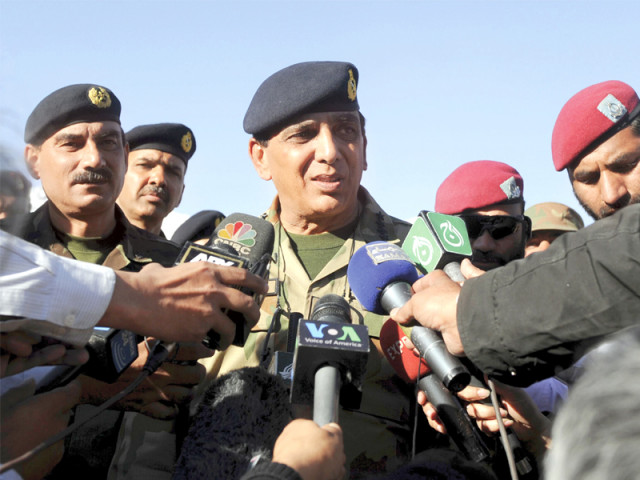Not without a hint of irony
Only in Pakistan would a speech by the army chief, reiterating his commitment to democracy, be seen as major news.

As reassuring as the army chief’s speech may have been, one can argue that it has more than its fair share of irony. The reason for that is simple and undeniable: for much of the country’s existence, it has been ruled by the military, which seized power by overthrowing elected civilian governments. Even in the case of the current PPP-led government, its predicament was made worse by the whole memogate affair, which perhaps would not have ballooned out of proportion as it eventually will, had Pakistan been a normally functioning democracy with the military playing its proper constitutionally-mandated role. It is worth reminding readers that both Generals Ziaul Haq and Pervez Musharraf never stopped singing praises of democracy and vowing that they will restore it. We all know what transpired out of these words and how the nation suffered from years of debilitating military rule.
Furthermore, since one is on this most important of subjects, i.e., civil-military relations in Pakistan’s fragmented and complex polity, perhaps it would not be out of place to suggest that if the military has now realised the virtues of the Constitution and the boundaries it sets on all institutions, then all policy matters, including foreign and security policy should be in the hands of the elected government of the day.
Published in The Express Tribune, May 2nd, 2012.














COMMENTS
Comments are moderated and generally will be posted if they are on-topic and not abusive.
For more information, please see our Comments FAQ